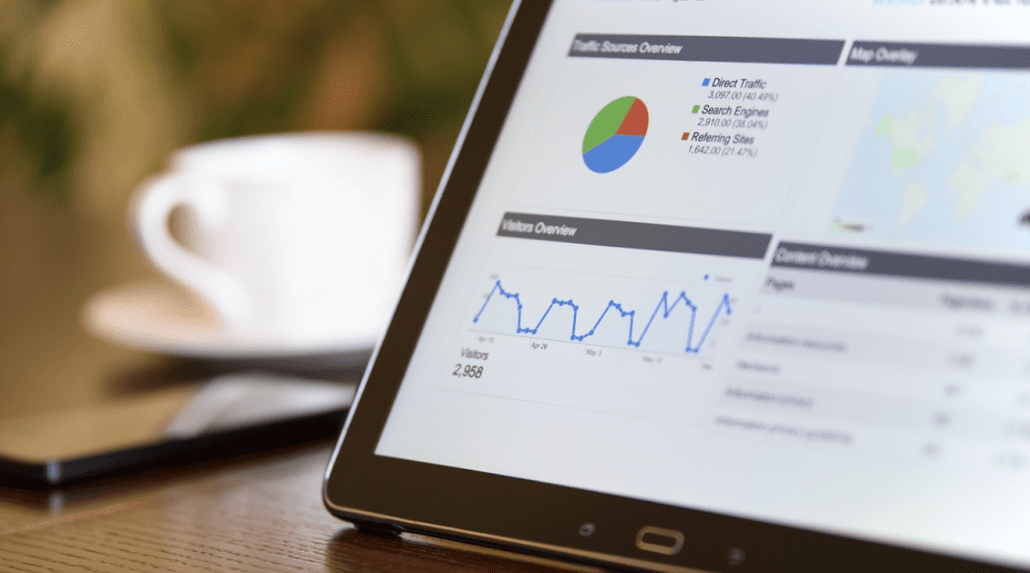Finding More Flexibility For Your Business
We live in a competitive environment where the business is fueled by technology 24 hours a day, seven days a week, and because of this, we need to be flexible. The days where you could create business plans a year ahead of time and expect to be able to stick to them with nothing changing are long gone. While planning is a necessity to succeed in business, particularly for long-term vision, short-term activity and flexibility are just as important. You need to be able to move when needed and respond quickly to changes in the market.
Now that we have so much business data, there is an endless supply of information available regarding our customers, our competitors, and our business results. While this is so useful, and we have more insight than ever before, the minute you make an important decision, it’s highly likely that new data will come along and completely change your direction. Rather than seeing this as a bad thing, it’s important to see how great it is because it allows you to correct the course that your business is going and make sure that by changing strategy and adapting to new results that you get the desired results that you forecasted. This is a good thing and something to be embraced, so look at new data as a mountain of information and an endless stream of insight that will allow you to flexibly change your plan to ensure success.
Embracing these new customers from new generations who have been born with the internet and mobile phones as the norm in their lives means that you need to give them what they want and that requires flexibility in how we communicate with them. You need to be able to move flexibly with your audience and growing customer base to introduce them to your brand but on their terms, rather than how you think it should be.
Technology has also meant that there has been a huge shift in the traditional business model; just look at the number of brick-and-mortar stores which are closing each week. The way we do business has dramatically changed, so if your business isn’t flexible enough to keep up with the changing times, then it will get left behind. You need to be flexible enough to shift your business model as you need to, and you can do this by using your customers and their needs as your guide. As things change, you have to get used to the fact that your old habits probably won’t work anymore, so it’s important to change them in order to create new ways of driving your business forward. Again, this isn’t a bad thing, as a change in the business model just means a new opportunity for growth. To succeed in business, it is more important to be flexible right now than it ever has been and what this means is that you may just have to make newer and bigger decisions on a daily basis to keep your business fresh and up to date as you gather new information. It might seem like a lot of hard work, but at least it makes things interesting, and if you get used to this way of working then you will easily attract new customers, and find it easier each time you need to refresh your business model for continued success.
Flexibility in the way businesses operate can take many forms, but adaptability and agility are increasingly becoming key attributes in competitive enterprise scenarios. There is a real need for flexibility at a strategic level, both in terms of the way in which businesses operate and from the perspective of individual employees. Here’s a look at some of the essential ways in which businesses can look to make their operations and their workforces more flexible:
Remote working
Through technological advancements, remote working has been made increasingly possible over the past decade or so, and it’s now an accepted part of the way many organizations operate. Different roles bring particular demands on individuals, but virtually all businesses stand to benefit from giving members of their workforce the chance to function as normal from almost anywhere.
Deploying new solutions
Equipping staff with the smartphones, tablets, and laptops they need to operate seamlessly on the move or wherever they might be is vitally important in the context of enterprises becoming flexible. But new software solutions and cloud-based business applications can be crucial too in giving businesses the best chance to be flexible and more efficient in a variety of valuable ways. There are also more physical ways to ensure flexibility, for example, if your business manages a fleet of vehicles then look at getting a Watchcard which allows you the convenience and flexibility to fuel anywhere in the U.S. with the control and security to monitor and limit purchases, track suspicious activity, and access fuel data about your fleet. This flexibility means you can manage your fleet effectively while saving time and money and gives you the power to drive your business forward and save.
Flexible hours
The advance of communications technologies of different sorts has opened up the prospect for employees of working from home and in patterns that suit their individual needs. Businesses that embrace flexible working are seeing benefits in terms of employee morale and staff retention but also from the perspective of meeting customer needs. Companies of all sizes increasingly need to be operational around the clock and having resources’ out of hours’ has become an integral part of how service providers deliver what their customers want without disruption.
Cash Flow Options
As we all know, cash flow is the lifeblood of businesses big or small and ensuring financial flexibility can be the difference between a company remaining operational and biting the dust. For small to medium-sized operators, in particular, financial margins can be tight and unforgiving. So, being aware of, and having in place, a number of emergency financing options can often be essential in keeping companies afloat during times of acute pressure on cash flows and income streams.
Be Flexible With Flexibility
While many think of being flexible in business as offering flexible hours and working from home, there is actually a lot more to making a business a flexible one. Have a look at where you can make differences to your employees, for example; you could introduce secondments, career breaks, and volunteering opportunities. All of these opportunities will make you a far more attractive employer for the new generation of employees to work for. You have to be flexible in adapting to what prospective employees are now looking for in the workplace and take these needs and wants into account. If you are good to your employees then, in turn, people will be loyal to you as an employer. If you can be understanding that your employees need breaks; they might want to explore, volunteer and travel and shouldn’t have to lose a job they love and are good at just because of having interesting outside of work. If you are the employee then again, speak out and tell your employer what it is you want, they either want to lose you, or they don’t, but any career break or secondment will only be good for your career and experience so they’d be silly not to offer you the chance to come back.
Flexibility is something of a buzzword in business at present, but it isn’t necessarily worth pursuing its own sake. What flexibility really means and why it’s important is that it makes businesses more robust, more adaptable, more competitive, and better prepared for whatever opportunities and challenges the future might bring.





 As an entrepreneur, you will have already made a few risky decisions – some that have paid off, and some that have not. For business owners that are looking for new ventures that guarantee stability though, read on to see which sectors are in demand and sustainable long-term.
As an entrepreneur, you will have already made a few risky decisions – some that have paid off, and some that have not. For business owners that are looking for new ventures that guarantee stability though, read on to see which sectors are in demand and sustainable long-term.
